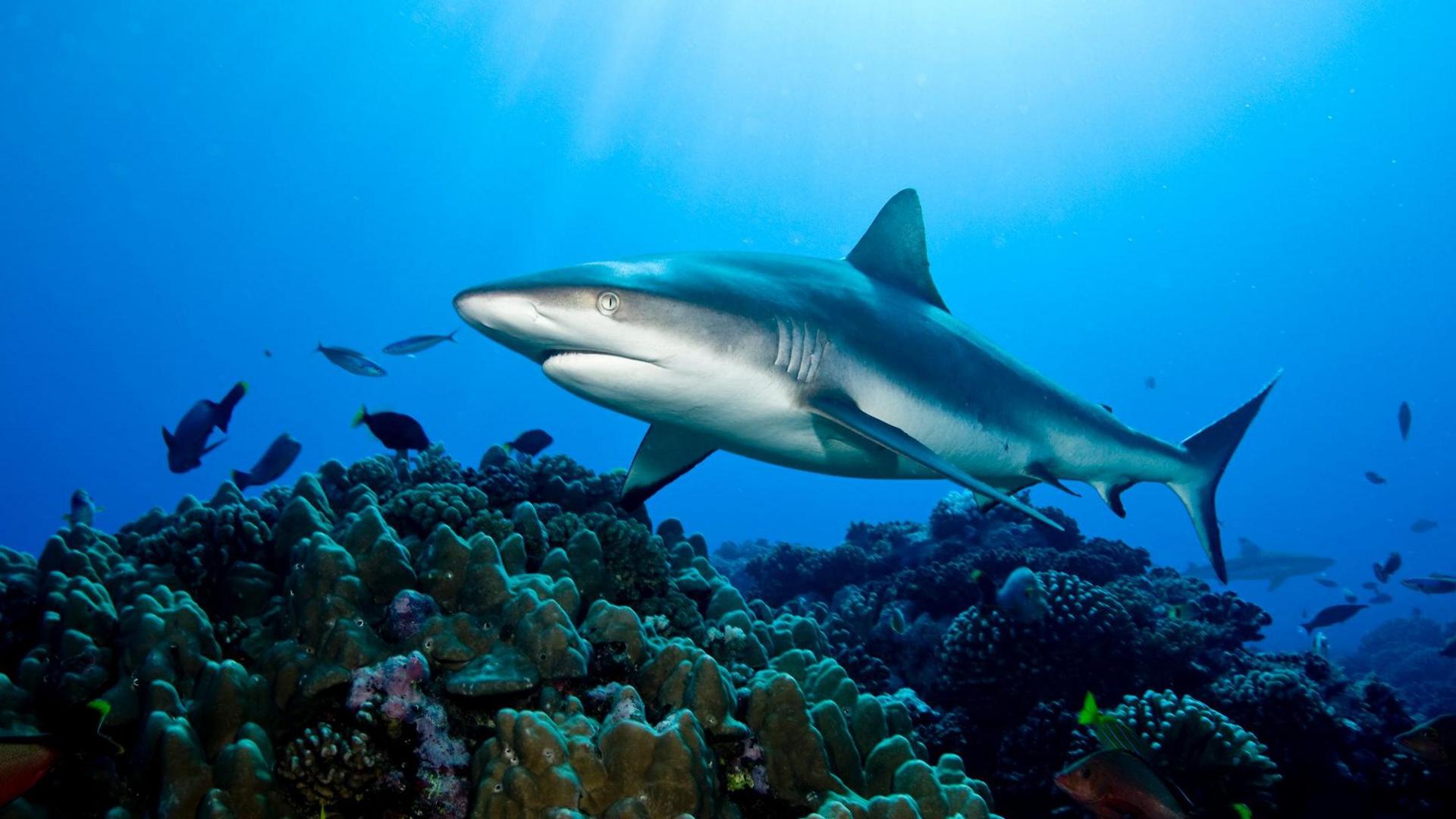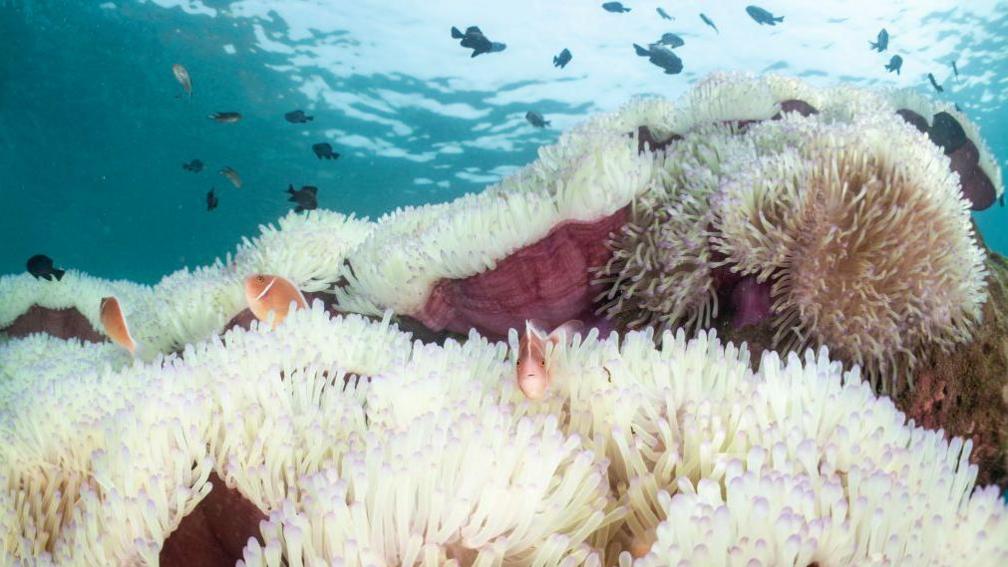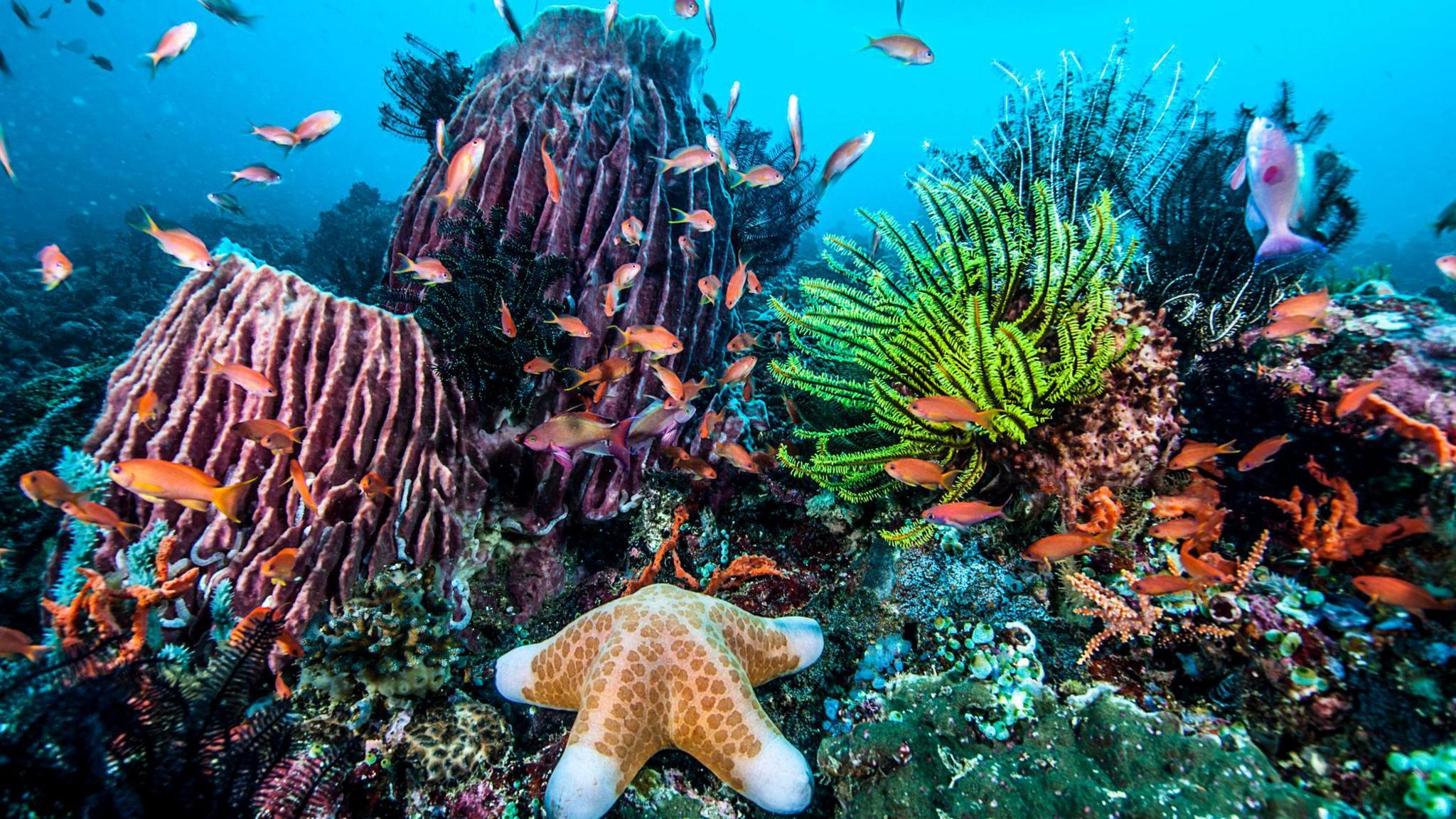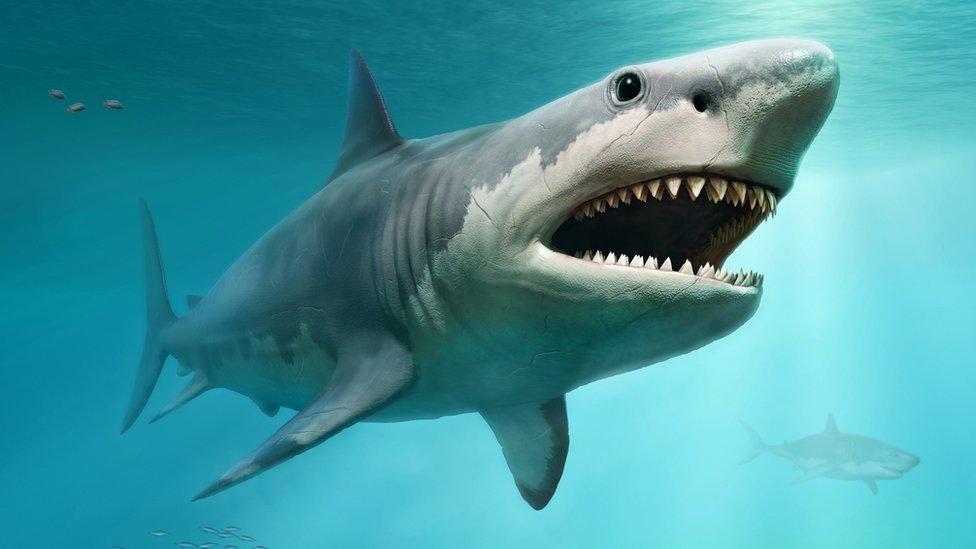Sharks leaving 'stressed' coral reef homes as sea warms

- Published
Sharks are leaving their coral reef homes due to pressure caused by climate change, UK scientists have said.
122 grey reef sharks that live on the remote reefs of the Chagos Archipelago in the Central Indian Ocean were tagged and tracked between 2013-2020 by a research team led by Lancaster University and the Zoological Society of London.
The study found that, as warmer temperatures put the reefs under stress, the sharks left, with some not returning for up to 16 months, disrupting the ecosystem.
Climate change is predicted to cause coral bleaching events annually by 2043, so scientists say it's important to understand the impacts to help support coral reefs and those relying on them.
More stories on coral reefs
Loudspeakers are bringing fish back to coral reefs
- Published30 November 2019
One of the worst coral bleaching events ever seen at Great Barrier Reef
- Published27 June 2024
Our Changing Planet: How scientists are helping coral. Video, 00:02:48
- Published22 April 2024

Coral bleaching causes the reef to turn white
How does climate change affect coral reefs?
Over the past 20 years there has been a "significant decline" of coral cover across the world due to increases in disease, tropical cyclones, and coral bleaching, according to the report that is published in the Communications Biology journal.
Coral bleaching is when the water is too warm so the reefs expel the algae living in them and turn white. The reef can survive this, but it puts it under added pressure.
Different types of sharks rely on the reefs as an important habitat for feeding, breeding and socialising. So changes in the coral also change how the predators behave.
The sharks, which are endangered themselves, play an important role in keeping the reef in good order. They do things like eating small fish, controlling their populations and preventing overgrazing.

Why are coral reefs so important?
Coral reefs act as nursery grounds for fish and other marine life.
It’s estimated that 25 percent of all marine life globally depends on coral reefs for at least one stage of its life cycle.
Coral reefs are the most biodiverse habitats in the oceans and provide the structure of the ecosystem, where other plants and animals live.
The study showed it's not bad news for all the reefs. Some experienced sharks spending more time on them. These reefs were thought to be healthier thanks to things like having more nutrients from seabirds, which help to fertilise them.
These findings indicate that there could be more factors influencing shark decisions, and that some reefs are more resilient to stress.
“We now need to find out what exactly is driving decision-making in these animals during periods of stressful conditions,” says Dr David Jacoby from Lancaster University.
More shark stories
- Published3 September 2024

- Published22 April 2024

- Published9 February 2022

